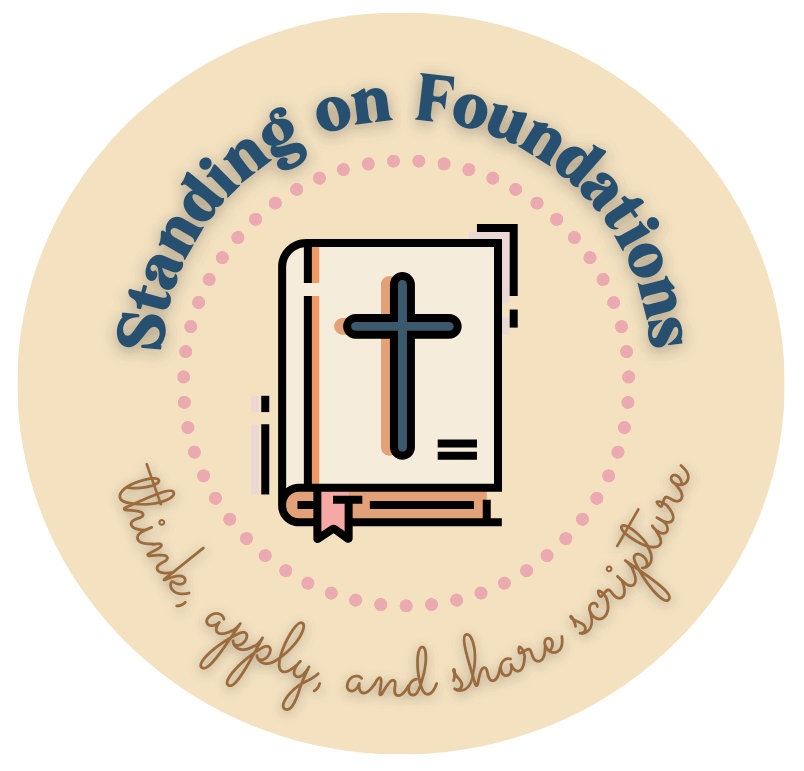Are you looking to Jesus? Part 2
The call to examine our hearts.
The 3 main categories of the heart

Thinking back to our New Year’s resolutions and how looking to Jesus provides us the means toward walking by faith. We turn now to how we “let us.”
Examining our heart begins by understanding three main categories of the heart.
The heart is like a plant’s roots; the roots determine the plant’s health. If the plant’s roots (the heart) are rotten, the whole plant will eventually suffer and die. Good behavior can not flourish when our hearts are unchanged (condition). Matthew 12:33–37
Our heart reveals what we treasure (affections) and what is most natural to flow out of our life. (motivation) Matthew 6:21, Proverbs 4:23.
1) Heart Condition: Holiness
In Christ, our relationship with God is reflected in our position (justification) and our life direction (sanctification). God has justified all who believe and trust in Christ; they are declared right with God.
On the other hand, sanctification is a lifelong inward working of the Holy Spirit. The Spirit motivates and empowers our hearts to humbly submit to His work of conforming us to the image of Christ.
Though our position in Christ was settled at the cross, we still struggle with sin and need to fight against it actively.
The first question to ask is, Am I resting in the grace of Christ for my right standing with God? Second, does my struggle with sin cause me to fight against it through the power of the Spirit?
When we allow sin to rule unchecked, it affects our affections and motivations. Ephesians 2:1–10 Proverbs 27:19, Ezekiel36:26
Sign up below to get your FREE Bible Study Jump-Start
2) Heart Motivation: Focus
Our heart’s motivation reflects what drives our hearts and lives. (See Psalm 16:2, 26, Romans 12:11, Matthew 6:33)
What is currently driving your heart? Maybe it’s a very godly desire like being a good wife? A good student, or perhaps you desire to be a godly grandparent. All these desires are good and godly; however, the question is not do I desire something God would want for me, but do I desire God?
The Bible is first and foremost about God, who He is, and what He has done to answer man’s greatest need, salvation. Do we long to know Him and to be transformed by His Word?
There’s nothing wrong with going to the Bible searching for encouragement, answers to questions, or even guidance on how to live for His glory. The problem we face when we start with ourselves is that we stop resting in Jesus. Instead, we turn our dependence back on ourselves and go “around the mountain” one more time, only to fall harder than last time.
First, ask yourself, is God my priority? Do I desire to know Him?
This is not about trying to follow some expected “quiet time” length or agenda; instead, it is resting at the feet of Jesus and depending on His strength instead of your own.
3) Heart Affections: Faith
Whatever desire is the strongest in our lives is what will motivate our actions. (See Proverbs 23:26, Hebrews 11:6, 1 Corinthians 2:5)
What is the difference between the affections and motivations of your heart? Great question!
Let’s think back to what we said about the condition of the heart. If your position in Christ, our justification, has been settled (through grace alone, by faith alone, in Christ alone), then we are at peace with God. God has declared us righteous because of what Christ has done, and we can do nothing to add to it or subtract.
In the book of Ezekiel, the prophet says:
25 I will sprinkle clean water on you, and you shall be clean from all your uncleannesses, and from all your idols I will cleanse you. 26 And I will give you a new heart, and a new spirit I will put within you. And I will remove the heart of stone from your flesh and give you a heart of flesh. 27 And I will put my Spirit within you, and cause you to walk in my statutes and be careful to obey my rules.
Ezekiel 36:25–27
When God declares us right with Him, He doesn’t just give us a “not guilty” verdict. Instead, he compels us to walk in faith that desires obedience. Obedience to God is not “rule following” or “performing” for God; it’s a dependence that changes our affections. Our affections reflect our faith. As a result, we grow to love God and desire to obey Him. Psalm 40:8.
Our motivations are affected by what we desire. For example, if we desire to please God, our motivations (focus) will be toward this end. An example would be if I desire to love and obey God, my life will be ordered so that He is my priority.
I see spending time with Him in His Word, in prayer, with fellow believers (etc.) as more important than trying to follow a list of “good deeds” or “good behavior” I am driven to be in God’s presence rather than be alone or with His people.
I love how Dr. John MacArthur often put it:
“It isn’t the perfection of your life, but the direction of your life.”
John Macarthur
I love that because it is an excellent reminder that perfection is what Christ accomplished on our behalf. Yet, we remain on the earth in our sinful bodies; we will battle with sin. This is why examining our hearts is so important. We need the weekly, daily, moment-by-moment reminder that we are in desperate need of the grace of Christ.
Now that we know the three categories of the heart, let’s move to how we examine it.

What are you trying to fix?
The most significant weight we can carry is the weight of sin. The weight of sin is the first “let us” in Hebrews 12:1 “Let us lay aside every weight and sin which clings so closely” Jesus, by His grace, has removed that weight and placed it on Himself (See Matthew 11:28–30). Releasing the weight of sin from ourselves to Christ is what examining the heart is all about, knowing what is keeping us from resting in the grace of Christ.
What are you struggling to fix in your life? Are you struggling to have a daily quiet time? Have you started and stopped more times than you can count, only to question your sincerity or motives? Do you feel you will never get it right?
It isn’t a lack of time, other people, or unfavorable circumstances; we don’t struggle because of external factors but internal factors, namely the heart. (See Matthew 15:17–20, Psalm 19:14, Proverbs21:2)
Maybe you are struggling with questions (faith)or doubts about who God is or what the Bible is about. These questions are essential; asking is the first step to finding the answer Jeremiah 29:13.
We should always come to God’s Word prayerfully and humbly, taking the time to investigate, seek counsel, and trust God in His Word. It is this kind of person whom the Bible promises will find answers. Proverbs 3:5&6, Romans 10:9
Lastly, and most difficult, is our ongoing battle with sin. If you are struggling with sin, guess what? You aren’t alone. Like our examples of developing time with God and finding answers to our questions, our battle with sin starts with examining the hearts 1 John1:8–10.
Have trouble finding your way around the Bible? Join me for a 90-minute coaching session where I will walk you through 4 important steps to Bible Study. Workbook and Study notes included. Click the image below to get started.
The goal is Christlikeness
The goal of examining our hearts is never to make investigation an end in itself. Instead, the goal is that our lives be conformed to the image of Christ so that we might reflect His glory (See Romans 8:29, Colossians 3:10). When we walk in the Spirits Galatians 5:16–18, then our second “let us,” “let us run with endurance the race that is set before us.”
The race that the author to the Hebrews refers to is the goal of Christlikness.
Jesus says in John 17:3, “This is eternal life, that they may know You, the only true God, and Jesus Christ whom You have sent.” The apostle Paul in Romans 12:1&2 gives us a snapshot of what knowing God means in our behavior. Knowing God causes us to present ourselves (our bodies) as a living sacrifice of worship to God by renewing our minds through the Word, forsaking the world, and ultimately our way to follow Christ.
The Christian life isn’t focused on self-improvement but on God, who is perfect (looking to Jesus) so that we might be conformed to the image of His Son, Jesus Christ.
May our hearts be changed by looking to Jesus, the one who has taken the burden of sin and sent alongside the Father the Holy Spirit who compels us to be conformed to His image.



